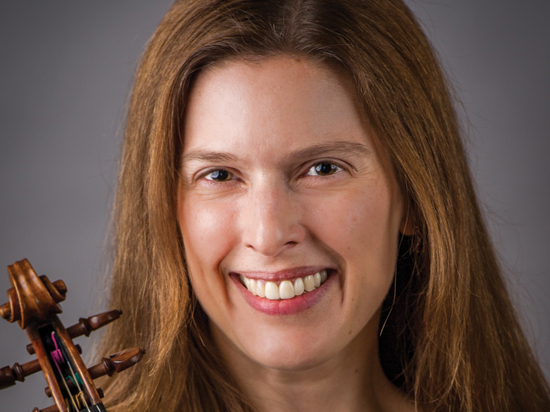Chamber Music at the Schermerhorn:
The Elliston Trio plays Haydn and Ravel

On a cold February night, the Elliston Trio played a program of Franz Joseph Haydn and Maurice Ravel to an intimate audience at the Schermerhorn Symphony Center. Founded in 2016 the trio is made up of Matthew Phelps (piano), Erin Hall (violin), and Keith Nicholas (cello). They have made numerous appearances around Nashville since their inception and have become a staple of the Schermerhorn’s Chamber Music Series. This concert, on February 1st, was a free concert open to the public and presented a great contrast between two different composers look at the Piano Trio. I had the privilege of interviewing Matthew Phelps before the concert (which can be read here) where he described the distinctions between Haydn and Ravel’s treatment of the instrumentation.
In the Schermerhorn’s past Chamber Music events the audience was invited to sit on stage with the performers and look out onto the hall. This was not the case for this evening as the audience were spaced out on the main floor of the hall and the performers came to the edge of the stage. Microphones annoyingly obscured the view of the trio, and the back of the stage was cluttered with the remnants of a full orchestra rehearsal. The programs that the audience received were single sheets of paper cut in half with the front displaying the program and the back half was a 100-word land acknowledgement asking for donations. These factors, and the entrance to the hall being confined to one doorway, made the whole event feel like it was not receiving the attention that it deserved. This was a shame because the playing was quite phenomenal.

Opening the program was Haydn’s Piano Trio in C Major Hob. 21. Haydn wrote over 40 piano trios and this was written during his second trip to London where he was heralded as the world’s greatest living composer. This piece is perhaps not the biggest piece of evidence to support that claim, but it is full of all the life, joy, and humor we expect to find in Haydn. The second movement in particular, is a slow beautiful melody. I am so accustomed to hearing the power of the full Nashville Symphony in this hall, but the Elliston Trio did not sound small at all. The lyrical string playing of Erin and Keith balanced tremendously well with Matthew on the piano. This piece, lasting around 15 minutes, is a perfect three movement miniature of the larger scale forms we see in Haydn’s symphonies.

The final piece was Ravel’s Piano Trio in A minor. This is a four movement 30 minute work that has its roots in Haydn’s Classical era. There are two movements in Sonata form, a passacaglia, and a scherzo, yet each movement is unmistakably Ravel. This is a work that Matthew Phelps described as “musically and technically difficult” and it was obvious from the first few minutes that we are in a completely different sound world than the Haydn. Ravel seems to be searching for the maximum amount of expression that he could get out of the instruments and he asked for techniques like harmonics and pizzicatos to highlight that expressivity. My largest takeaway from this piece was how sensitive the Elliston Trio was to Ravel’s demands. The players were able to turn on a dime to let another member take the lead.
After the music Keith Nicholas took the microphone and asked the audience if they had any questions. A twenty-minute discussion ensued covering topics such as the music, the group, preparation for the performance. The Q&A format fit quite nicely into the community event style. Overall, it was a remarkable performance making me excited for more Chamber Music events in the future. As I walked to my car reflecting on the performance, I heard several animated college students figuring out what chamber repertoire they should like to play after hearing the professionals do it.



